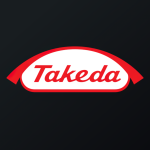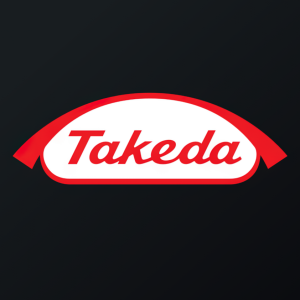Welcome to our dedicated page for Takeda Pharm news (Ticker: TAK), a resource for investors and traders seeking the latest updates and insights on Takeda Pharm stock.
The TAK news page on Stock Titan aggregates company-specific coverage for Takeda Pharmaceutical Company Limited American Depositary Shares (NYSE: TAK). Takeda’s own disclosures describe it as a values-based, R&D-driven biopharmaceutical company headquartered in Japan, with core therapeutic and business areas in gastrointestinal and inflammation, rare diseases, plasma-derived therapies, oncology, neuroscience and vaccines. Because of this broad focus and active pipeline, Takeda generates frequent news across clinical, regulatory, partnership and financial topics.
Recent press releases highlight late-stage clinical data and regulatory plans for several key programs. In neuroscience, Takeda has presented Phase 3 results for oveporexton (TAK-861), an investigational oral orexin receptor 2 agonist for narcolepsy type 1, showing statistically significant improvements in excessive daytime sleepiness, cataplexy and quality-of-life measures versus placebo. In immunology and dermatology, the company has reported pivotal Phase 3 data for zasocitinib (TAK-279), an investigational highly selective oral TYK2 inhibitor in moderate-to-severe plaque psoriasis, with studies meeting all primary and ranked secondary endpoints.
Takeda news also covers hematology and rare disease developments. Together with Protagonist Therapeutics, the company has released Phase 3 VERIFY and long-term THRIVE data for rusfertide, an investigational hepcidin mimetic for polycythemia vera, demonstrating durable hematocrit control, reduced phlebotomy requirements and maintained patient-reported outcome improvements. In nephrology, Takeda has shared Phase 1b data for mezagitamab (TAK-079) in primary IgA nephropathy, showing stable kidney function and sustained reductions in proteinuria and Gd-IgA1 levels up to 18 months after the last dose.
In vaccines, Takeda has announced seven-year Phase 3 TIDES trial data for its dengue vaccine QDENGA (TAK-003), reinforcing sustained protection against virologically confirmed dengue and dengue-related hospitalizations and supporting a two-dose regimen. Corporate and pipeline news includes strategic oncology collaborations, such as the global partnership with Innovent Biologics for late-stage assets IBI363 and IBI343, and financial updates on revenue trends, generic erosion impacts and revised full-year forecasts.
Investors and followers of TAK can use this news feed to track Takeda’s clinical milestones, regulatory filings, strategic alliances, portfolio prioritization decisions and IFRS-based financial disclosures as they are reported in press releases and SEC Form 6-K submissions.
The drug achieved its primary endpoint with substantial increases in mean sleep latency, reaching levels similar to healthy individuals. Secondary endpoints showed significant reductions in excessive daytime sleepiness and weekly cataplexy rates. Quality of life measures also showed marked improvements across multiple symptom domains.
The treatment was generally well-tolerated, with most common side effects being insomnia (43%), increased urinary urgency (30%), and frequency (29%). Notably, 95% of participants continued into the long-term extension study. Takeda expects Phase 3 trial results in 2025, positioning oveporexton as a potential first-in-class therapeutic option for NT1.
Takeda Pharmaceutical Company has announced a significant $13.8 million grant initiative targeting U.S. nonprofit organizations. The funding focuses on two key areas: promoting healthy eating and expanding STEM education across the United States.
The company has also released its U.S. Community Impact Report, which details their progress in building a more equitable health ecosystem. This latest grant allocation reinforces Takeda's ongoing commitment to improving health through community-based programs.
The announcement, made from their Cambridge, Massachusetts headquarters, demonstrates Takeda's continued investment in local communities and public health initiatives. For detailed information, stakeholders can access the complete report on Takeda.com.
Protagonist Therapeutics (NASDAQ:PTGX) and Takeda (TSE:4502/NYSE:TAK) announced positive topline results from their Phase 3 VERIFY study of rusfertide in polycythemia vera (PV) patients. The study achieved its primary endpoint with 77% of rusfertide-treated patients showing clinical response compared to 33% in the placebo group.
The trial met all four key secondary endpoints, including the EU primary endpoint showing 0.5 phlebotomies per patient in the rusfertide arm versus 1.8 in the placebo arm. Rusfertide, a first-in-class hepcidin mimetic peptide therapeutic with FDA Orphan Drug and Fast Track designations, demonstrated favorable safety with mainly grade 1-2 injection site reactions.
Following these positive results, Protagonist will receive a $25 million milestone payment from Takeda upon completion of the VERIFY clinical study report.
Takeda (NYSE: TAK) has received EMA approval for an additional subcutaneous administration option of TAKHZYRO® (lanadelumab) for HAE patients aged 12 years and above. The new 2 mL pre-filled pen joins existing delivery options including 150 mg and 300 mg pre-filled syringes and 300 mg vials.
The approval expands treatment options for Hereditary Angioedema (HAE), a rare condition affecting approximately 1 in 50,000 people worldwide. TAKHZYRO is approved in the EU for routine prevention of recurrent HAE attacks in patients aged 2 years and older. The new pre-filled pen contains 300 mg of lanadelumab in 2 mL solution, with approval supported by clinical study data.
Takeda (TOKYO:4502/NYSE:TAK) has announced that Julie Kim, current president of Takeda's U.S. Business Unit, will succeed Christophe Weber as CEO when he retires in June 2026. The decision was made unanimously by the Board of Directors after a multi-year succession process evaluating both internal and external candidates.
Weber, who joined Takeda in 2014 and became CEO in 2015, has led the company's transformation into a global R&D-driven biopharmaceutical company. The timing of this succession aligns with Takeda's competitive growth outlook and new product launches expected from the second half of 2026.
Kim, who has been with Takeda's Executive Team since 2019 and leads the U.S. Business Unit since 2022, brings three decades of healthcare experience across various leadership positions. She will be proposed as a candidate for Board election at Takeda's Annual General Shareholders Meeting in June 2026.


